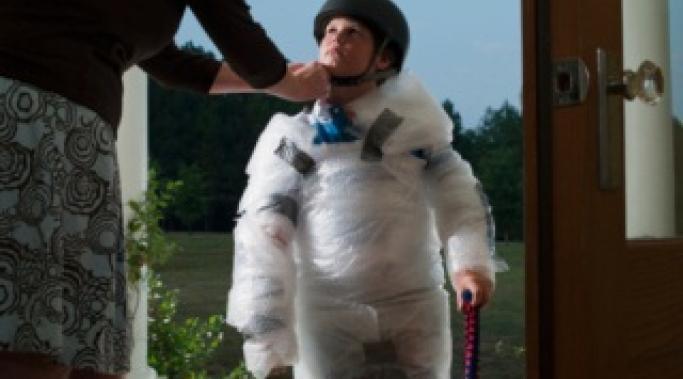Yesterday, I arrived at school for my teaching assignment. Before the first bell, three staff members had already offered their assistance and described my class of sixteen 2nd-graders as "awful."
On my first day of substitute teaching, I had been handed a room full of manic, unmedicated Bobs.
Mental Health Treatment - Parenting Child with Mental Iillness
Last week, we returned to Bob's psychiatrist to discuss the medications he takes for bipolar disorder and ADHD. Over the past year, his medication regimen (which he has taken for over two years) has become less and less effective, even as his doses are increased. I was ready to argue my case for a medication change. Luckily, I didn't have to.
This week, I encountered yet another insurance / psychiatric medication prescription snafu. Bob's old Seroquel prescription had run through its refills and I submitted a new prescription for his bipolar medication from his psychiatrist. Blue Cross Blue Shield refused to pay for it. Why? Because their monthly limit is 102 tablets. Bob's prescription for his psychiatric medication was written for 105.
Yes--splitting hairs over Three. Pills.
My name is Angela, and I am a control freak. If you read this blog with any regularity, this probably comes as no great shock to you. If you're new, however, you may not yet have noticed many of my posts contain the same underlying message:
How can I fix this?
Many parents of children who take psychiatric medications often face resistance from the child. In this mental health video post, I question when--and if--parents should allow their child to have input into their mental health treatment.
I dropped Bob off this morning to spend the next week with his father. On the way, we hit the pharmacy to pick up his medication refills. I handed him one of his pills, as we'd been out when he took his morning doses. "It's chewable," I said, "so you can take it without water."
When we reached his father's house, I got out of the car, gave him a long hug goodbye, and got back in the car. As he and his father drove away, I noticed, in the passenger seat, the pill I'd handed him twenty minutes earlier.
Most of the comments I get on this blog come from other parents like me--parents who are raising a child (or children) who have bipolar disorder, ADHD or another psychiatric diagnosis. Occasionally, however, I get a comment from a troll who wants to blast me for being a bad parent, drugging my bipolar kid into a state of submission, and throwing myself a pity party in the process. Why do I even read them? Why do I feed into their negativity?
Because deep down, I want them to be right.
As Bob grows older and gradually delves into the strange world of friends and playmates, I often find myself surprised at how much younger he often seems than his compadres. It's true I have "sheltered" him to a point--limiting his tv/movie/video game choices to the PG and G-rated varieties, closely supervising him at play and sometimes vetoing his choice of friends. However, it seems his "immaturity" is more a matter of nature than nurture.
I had intended to spout on a completely different topic today, but I'll be honest--this insurance business has, to coin a phrase, my dander up. Judging from the majority of comments I've received, I'm not alone.
My son, "Bob," has been diagnosed with bipolar disorder and ADHD. In my post titled "Insurance Companies Are NOT Psychiatrists--Why Are They Making Decisions?," I discussed how my insurance company has decided not to pay for refills of Bob's psychiatric medications - even though his psychiatrist thinks they are necessary for his mental wellness.
Your Child with Mental Illness is Being Over-medicated
One reader agrees with the insurance company. Why? Concernedmom says he's "over-medicated".







